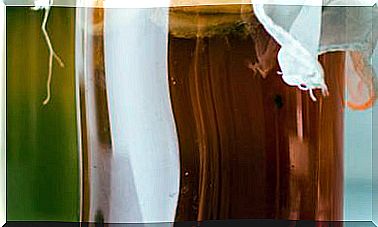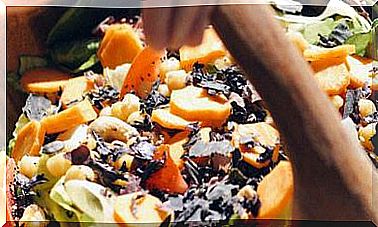Polycystic Ovary Syndrome: Your Diet Is The Key
PCOS is the silent disease of many women. This hormonal imbalance can be alleviated and its effects can be alleviated through diet.

Polycystic ovary syndrome (PCOS) is a hormonal imbalance that in women who suffer from it makes it difficult for the ovaries to release eggs correctly. These are trapped inside the ovary surrounded by a small amount of fluid that can cause cysts, hence the call “polycystic”.
It is estimated that about 10% of women have PCOS. It is a pathology that often has a genetic component.
It is also one of the first causes of infertility in young women, since eggs are not released or not as often as they should and obviously this greatly affects the chances of a pregnancy occurring.
The levels of androgens, male hormones, are usually altered, although they are present in a small proportion in all women, in cases of PCOS they appear at very high levels. This can be accompanied by acne, hirsutism, alopecia, and obesity. Insulin is also often altered, making these women more prone to diabetes.
The insulin resistance is a common symptom, and proper diet can reduce this hormonal disorder and prevent type 2 diabetes resulting in insulin resistance called the situation in which the cells do not respond properly to the action of this hormone and they do not allow glucose to enter their interior, leaving it in the blood and therefore raising blood glucose.
Diet for polycystic ovaries
Diet can be a very important factor in controlling the symptoms of PCOS. We know, for example, that women who suffer from obesity are more likely to develop it, so maintaining an adequate weight would be a protective factor.
A 2013 review on the dietary treatment of this syndrome first advises weight loss in these patients, if they are overweight, which is very common. And it seems that this is more important than the composition of the diet itself, as long as it is healthy, although it does seem that a low-carbohydrate diet can provide greater advantages in both weight loss and glycemic control and therefore in improving insulin resistance.
Studies confirm that a low-glycemic diet might be an appropriate approach. And even intermittent fasting does very well in other jobs improving insulin levels and helping reduce other PCOS symptoms and improving hormone levels.
Lifestyle is also very important, regular physical activity seems crucial to keep PCOS at bay, as it improves glucose metabolism and increases the insulin sensitivity of cells. This improvement also favors weight loss, which we have mentioned had numerous benefits in controlling the syndrome.
In terms of supplements, there appears to be evidence to recommend both vitamin D and myo-inositol. Myo-inositol seems even more effective than metformin in these patients, lowering the levels of testosterone that are usually high and cause problems such as alopecia, acne or hirsutism that we mentioned.
How to improve our diet if we suffer from polycystic ovary
- First of all, if we are overweight or obese, go to a dietitian-nutritionist to start a weight loss plan adapted to our needs. And if we have a healthy weight, try to maintain it and not increase it, since PCOS makes weight gain easier than usual.
- Play sports on a regular basis, if we are not doing it already.
- Eat a diet low in carbohydrates, that is, without sweets or sugar and with a low content in cereals and bread (and those that we consume, that are whole) and tubers. Basing our diet on vegetables, nuts, seeds, tofu, legumes, textured soybeans and foods of animal origin if we consume them such as eggs, whole dairy products, meat and fish. Be careful, we are not talking about a ketogenic diet, only a low carb diet with low glycemic index foods.
- Control our levels of vitamin D and supplement it if necessary.
- Consider taking a myo-inositol supplement, given the benefits it has shown in studies conducted in this regard.
- Assess together with a dietitian-nutritionist whether intermittent fasting could be appropriate in our case, since it is not a suitable practice for everyone. It is, for example, fasting 12-18h a day, and not necessarily every day. We can, for example, have dinner early, around eight o’clock in the afternoon, and not eat anything until 12 o’clock the next day. But in any case, always with professional advice.
- It appears that consuming omega 3s also helps, although the evidence is more limited than for myo-inositol. If you eat fish, eat small-sized oily fish in gentle cooking every week, and if you do not consume it, take walnuts or flax seeds.
Dietary and lifestyle change is a first-line treatment for PCOS, at the same level as pharmacological or hormonal treatment, commonly used in this pathology. Especially if we want to increase pregnancy options, so all women who suffer from polycystic ovary syndrome should pay special attention to their diet and their habits, since small changes can mean important improvements.









